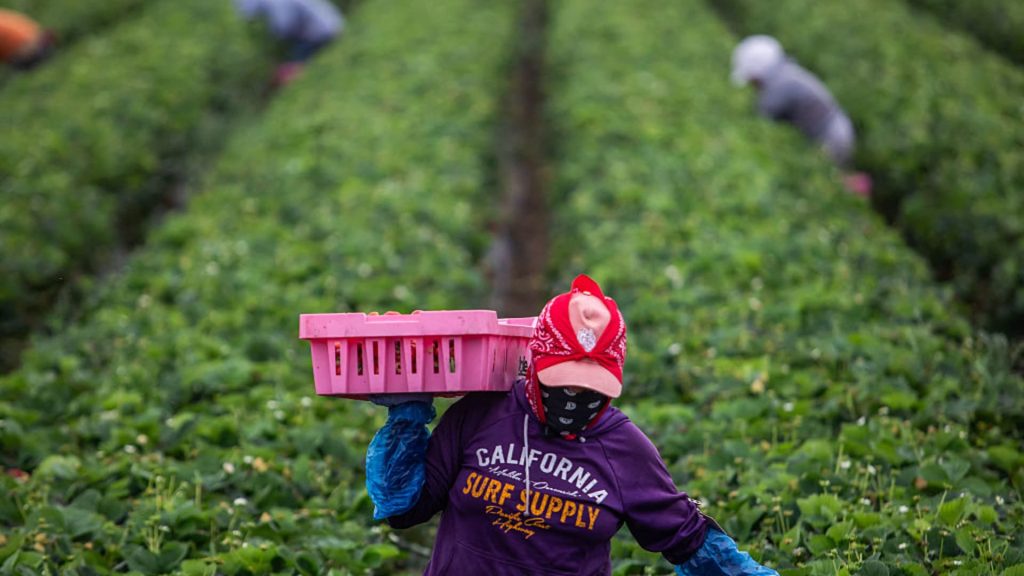Recent changes in U.S. immigration policy have led to significant anxiety among foreign nationals living and working in the country. The Trump administration has initiated the termination of the CHNV program, affecting approximately 500,000 immigrants from countries plagued by conflict and instability. This decision is causing a wave of protests, particularly in areas with high immigrant populations, as advocates call for more compassionate immigration solutions.
| Article Subheadings |
|---|
| 1) Overview of the CHNV Program Revocation |
| 2) Reasoning Behind the Termination |
| 3) Impact on Immigrants and Communities |
| 4) Political Reactions and Public Protests |
| 5) Future of Immigration Policy |
Overview of the CHNV Program Revocation
The CHNV (Cuba, Haiti, Nicaragua, and Venezuela) program was designed as a humanitarian measure to provide temporary stays for foreign nationals fleeing dangerous conditions in their home countries. Originally accepted under this program were applicants who had demonstrated significant need due to issues like civil unrest and severe economic instability. However, following a recent directive from the Trump administration, termination notices were issued to approximately 500,000 participants. This shift in policy marks a significant departure from the previous administration’s more lenient approach towards immigration, particularly in response to a growing humanitarian crisis impacting these nations.
Reasoning Behind the Termination
The decision to revoke the CHNV program was partly propelled by a Supreme Court ruling, which affirmed that the Department of Homeland Security (DHS) possesses the authority to direct CHNV participants to leave the country, despite ongoing legal challenges to the program’s termination. The administration argues that such measures are crucial for national security and to reassert control over immigration policies, which they view as being undermined by previous administrations. DHS Assistant Secretary Tricia McLaughlin accused the prior administration of misleading American citizens about the realities of these immigration statuses, signaling a broader political sentiment in favor of stricter enforcement.
Impact on Immigrants and Communities
The ramifications for those affected by the termination are immediate and profound. Many participants in the CHNV program had established lives in the U.S., having lived and worked in the country under the protection of this humanitarian measure for years. Now facing the threat of deportation, these individuals experience heightened stress and uncertainty regarding their futures. Communities that rely on the labor of these immigrants, particularly in sectors like agriculture and hospitality, are also affected. Local economies may now suffer from labor shortages as participants are compelled to “self-deport,” a term coined in the DHS communication which promises assistance through travel resources should they comply.
Political Reactions and Public Protests
The announcement of these policy changes has sparked widespread protests, particularly in urban areas with large immigrant populations. Advocacy groups argue that these measures are not just displacing individuals from their homes but are exacerbating the economic difficulties faced by industries relying on immigrant labor. In Los Angeles and elsewhere, public demonstrations have emerged, with participants demanding a more humane approach to immigration and protection for those who contribute to local economies. Critics of the Trump administration’s policies assert that the aggressive stance on immigration is harming both families and economic stability.
Future of Immigration Policy
As the political landscape shifts and upcoming elections loom, the future of U.S. immigration policy remains uncertain. Officials within the administration, and particularly former President Trump, have begun acknowledging the pressures their policies are putting on crucial sectors of the economy, like farming and hospitality, which often employ immigrant labor. For example, Trump himself noted that his administration’s stringent actions against undocumented workers were inadvertently threatening the livelihoods of American farmers who depend on a stable source of labor. There is speculation that adjustments may be made to better balance immigration control with the economic realities facing the nation.
| No. | Key Points |
|---|---|
| 1 | The CHNV program aimed to support immigrants from Cuba, Haiti, Nicaragua, and Venezuela facing dire conditions. |
| 2 | The Trump administration is moving to terminate protective statuses for a large number of immigrants. |
| 3 | A Supreme Court ruling legitimized the authority of DHS to enforce the termination. |
| 4 | Protests have erupted in response to the policy changes, highlighting public dissent. |
| 5 | Future immigration policies may adapt to address labor shortages in essential industries. |
Summary
The recent termination of the CHNV program marks a pivotal shift in U.S. immigration policy that stands to impact countless lives and communities. As federal authorities move forward with enforcement measures, rising protests indicate significant public concern over these developments. The interplay of national security and economic needs may drive future revisions to immigration policies, urging a re-examination of the balance between strict enforcement and the necessity for immigrant labor in the economy.
Frequently Asked Questions
Question: What is the CHNV program?
The CHNV program was established to provide temporary employment and residence permits for immigrants from Cuba, Haiti, Nicaragua, and Venezuela escaping dangerous conditions.
Question: Why was the CHNV program terminated?
The termination was primarily driven by a desire to enforce stricter immigration policies, as validated by a Supreme Court ruling supporting the DHS’s authority to revoke such statuses.
Question: How are communities reacting to these policy changes?
Communities that rely on immigrant labor have expressed significant concern, leading to public protests advocating for a more humane immigration reform.
